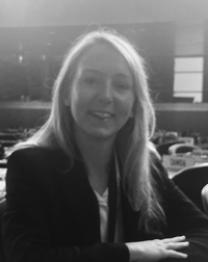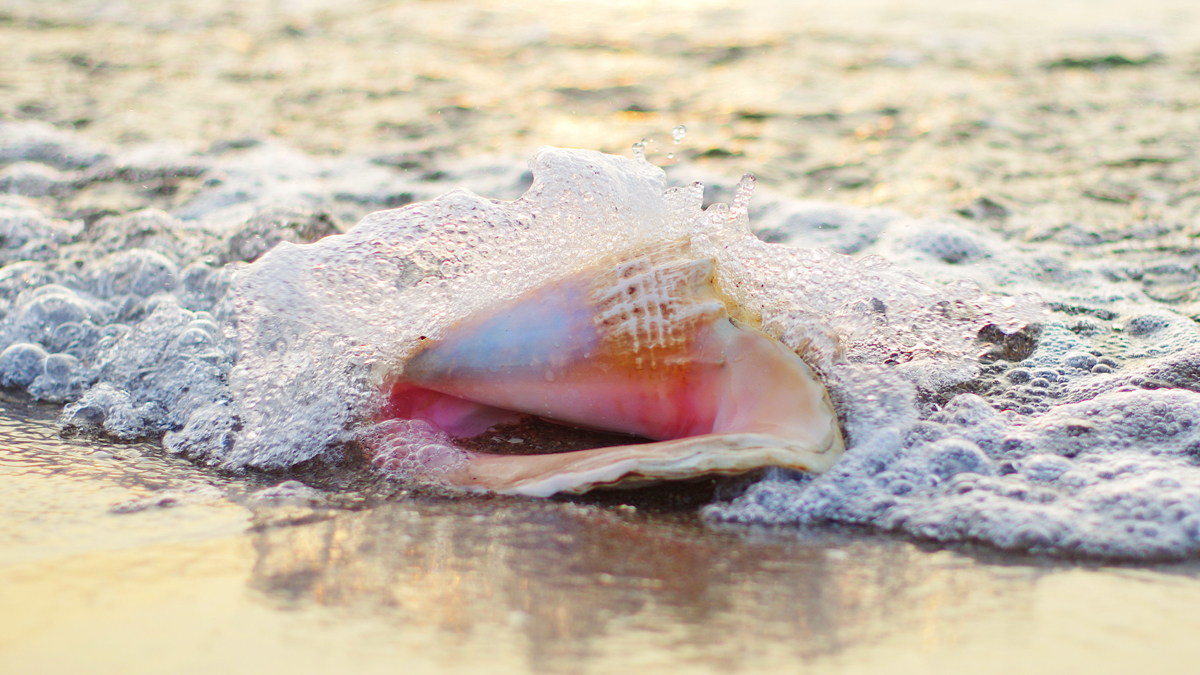
Join the livestream of the event: https://media.un.org/en/asset/k1i/k1iwn6c4et
Background:
The Convention on International Trade in Endangered Species of Wild Fauna and Flora (CITES) has a long history of regulating international trade in many marine species (e.g., clams, corals, dolphins, marine turtles, sea horses, queen conch and whales) to help ensure their survival in the wild. In particular, over recent years, several new species of sharks and rays, teatfish and queen conch have been added to Appendix II of CITES. This means that international trade – that is, the import, export, re-export and ‘introduction from the sea’ – involving these species is subjected to specific CITES procedural requirements. The CITES Secretariat has undertaken a range of activities in order to identify key challenges faced by Parties in implementing legal obligations around trade in listed marine species and to build Parties’ capacity to address these, promoting sustainable and traceable ocean trade. This session aims to spotlight and build awareness of the key issues for CITES Parties in implementing new marine species listings over recent years, and the important contribution that this implementation makes towards the objectives of SDG14.
One key focus of the session will be to highlight the findings and implementation of the Blue BioTrade Project, a Caribbean-based project led by the United Nations Conference on Trade and Development (UNCTAD) and the Organisation of Eastern Caribbean States (OECS), with the collaboration of CITES and the European Union. The first phase of the project was launched in October 2020, set to conclude in July 2022, and consisted of supply chain analyses in the Caribbean Small Island Developing States (SIDS) of St Lucia, Grenada, and St Vincent and the Grenadines, focusing on queen conch, a crustacean representing most of those Parties’ export revenues from fishing. The reports from phase one provided recommendations to support participating countries to manage their ocean resources sustainably and meet CITES obligations concerning sustainable trade (including providing advice on measures necessary to lift CITES trade suspensions). The project closely corresponds to UNOC’s interactive dialogue on strengthening sustainable ocean-based economies for SIDS.
Objectives:
The 2022 UNOC provides an opportunity to raise awareness and provide information to the UNOC community concerning CITES legal obligations on sustainable and traceable ocean trade and the important contribution that their implementation makes to the objectives of SDG14. It also provides an apt moment with relevant political momentum for the launch of the second phase of the Blue Biotrade project, centered on implementing a regional action plan based on the conclusions of the first phase. The side event will bring together stakeholders (CITES, UNCTAD, OECS and Member States) to discuss a range of CITES ocean issues, and to brainstorm on the specifics of the regional action plan.
About this event:
The Convention on International Trade in Endangered Species of Wild Flora and Fauna (CITES) regulates international trade in some of the world’s most vulnerable marine species to ensure that trade is legal, sustainable and traceable. This event will focus on the science-based and innovative approaches taken by CITES, in collaboration with key partners UNCTAD and the OECS to combat unsustainable trade practices.
The Blue BioTrade Project is a Caribbean-based project led by UNCTAD and OECS with the collaboration of CITES and funding from the European Union.
Join us to learn how we support participating countries to manage their ocean resources sustainably and meet CITES obligations concerning sustainable trade.
Moderator:
- Mr. David Vivas, Legal Officer, UNCTAD
Speakers:
Keynote:
- Mr. Saboto Caesar, Minister of Agriculture, Forestry, Fisheries, Rural Transformation, Industry and Labour, Saint Vincent and the Grenadines
Welcome remarks:
- Ms. Ivonne Higuero, Secretary General, CITES
- Ms. Teresa Moreira, Officer-in-Charge (Rotational), Division on International Trade and Commodities, UNCTAD
Spotlight:
The “Blue BioTrade Project in the Eastern Caribbean”
- Mr. Lench Fevrier, Technical Specialist, Agriculture, OECS
- Mr. René Gómez-García, Head, Green Business Unit, CAF
Open Discussion
Concluding remarks:
- Ms. Rachel Gaughan, Legal Officer, CITES
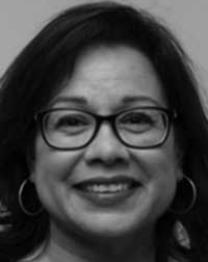
Ivonne Higuero is an environmental economist with a career spanning 29 years in international organizations focusing on sustainable development. She is passionate about demonstrating the economic value of biodiversity to spur investment in nature. During her 27 years with the United Nations, Ms. Higuero has managed and provided oversight to the implementation of programmes related to sustainable development and provided secretariat services to intergovernmental bodies, particularly in the field of environment and biological diversity. With the adoption of Agenda 2030 and the Sustainable Development Goals, she has been responsible for ensuring the alignment of a variety of UN programmes to support countries in meeting their international commitments, including through cross-sectoral cooperation. Ms. Higuero has experience working with UN Member States at the global, regional and national levels, and engaging with civil society and private sector stakeholders.
The Secretary-General is a national of Panama and holds a Bachelor of Science degree in Biology from the University of Missouri and a master’s degree of Environmental Management in Natural Resource Economics and Policy from Duke University.

David Vivas Eugui is Chief of Ocean and Circular Economy Unit, a.i., Trade, Environment, Climate Change and Sustainable Development Branch, at UNCTAD.
Previously, he was a Senior Economic Affairs Officer in UNCTAD’s Trade Negotiations and Commercial Diplomacy Branch, Deputy Programmes Director at the International Centre for Trade and Sustainable Development (ICTSD), Senior Attorney at the Center for International Environmental Law (CIEL), Attaché for Legal Affairs at the Mission of Venezuela to the World Trade Organization (WTO) and Staff Attorney at the Venezuelan Institute of Foreign Trade. David is an international expert with more than 20 years of experience on legal and economic issues.
He has worked as an advisor and consultant for various institutions, international and national organizations and has lectured on intellectual property, trade, oceans economy and environmental law at the University of Strasbourg (CEIPI), Universidad de Buenos Aires (Argentina), Universidad Javeriana (Colombia), Maastricht University (the Netherlands), WIPO Distant Learning Academy, and University of Business and International Studies (Switzerland).
He holds a JD from the Universidad Catolica Andres Bello, an LLM from Georgetown University and a Master in Transnational Business from the Universidad Externado de Colombia.
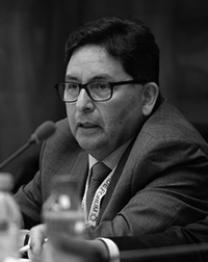
René Gomez Garcia was State Minister for Public Works and Services of Bolivia (2003-2005). He was also Director of Hydrological basins and land at the Ministry of Sustainable Development in Bolivia, as well as the National Coordinator of the Capacity 21 Programme of UNDP. He has more than 27 years of experience in the implementation of irrigation programs in the United States and in various Latin American countries. He has also taught in several private and public universities in Bolivia. He holds a PHD in civil and environmental engineering from the University of California at Davis and a MS in Agriculture and Irrigation Engineering at Utah State University, both in the United States. He is a civil engineer graduated at the Technological Institute of Monterrey, Mexico.
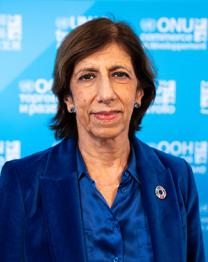
Teresa Moreira is the Head of the Competition and Consumer Policies Branch, Division on International Trade and Commodities at UNCTAD. She joined UNCTAD in 2016 and previously served as the Consumer Director-General of Portugal and as a Member of the Board of the Portuguese Competition Authority when it was first created. She also served as Portugal’s Director-General and Deputy Director General for International Economic Relations and held senior positions at the Directorate-General for Competition.
Teresa worked for over 20 years as a Teaching Assistant at the Faculty of Law of the University of Lisbon in the areas of International Economic Law and European Law, as well as European Competition Law and European Economic Law at the graduate level.
Teresa holds a degree in Law and a master’s degree in European Law (European Competition Law) from the University of Lisbon, Portugal.
Rachel is a consultant in the Legal Unit of the CITES Secretariat, working on a range of legal affairs such as the national legislation project, compliance and matters concerning trade in marine species.
Before joining CITES, Rachel worked as First Secretary, Legal at the United Kingdom Mission to the UN and WTO in Geneva. She has also worked on a range of international trade and environment matters as a legal adviser within the United Kingdom Department for Environment, Food and Rural Affairs.
Born in Scotland, Rachel studied law at the University of Cambridge and completed legal training with Ashurst LLP in London and Singapore.



